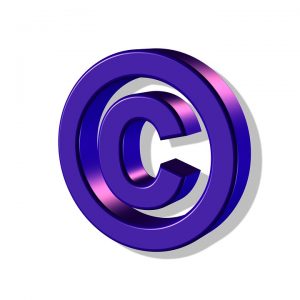By Alexandre Bohas
Translation: Melissa Okabe
Passage au crible n°58

Pixabay
The Megaupload affair could simply be considered as the last of a long series of copyright disputes. But its global character as well as its consequences, with the rejection of the PIPA and SOPA laws, makes for a pivotal event in the normative and institutional construction of the internet.
> Historical background
> Theoretical framework
> Analysis
> References
On January 19, 2012, 18 main Megaupload managers, including the emblematic Kim « Dotcom » Schmitz, were arrested for violating copyright laws, money laundering, and racketeering. Then the FBI decided its closure by blocking its web domain. For millions of users, this had a global effect, both by media coverage and by the consequences of these police operations. Based in Hong Kong, this leading company in direct downloads attracted, up to that date, nearly 50 million visitors per day, and counted 150 million official users, their connections generating nearly 4% of the global digital traffic. We counted, 525 servers in America, 630 in Holland allowing this connection.
In reaction to this sudden raid, a number of anonymous hackers and simple users protested against this ruling. The leaders even pirated highly symbolic sites such as the American Presidential site or Universal’s site, sites that were made unavailable. At the same time, Congress had to vote on two legal bills against cybercrime and counterfeiting, PIPA and SOPA. In particular, they expected to widen US judicial powers by allowing the possibility to proceed in taking down all suspicious internet content, whether it originated from the United States or abroad. However, in front of the mobilization of numerous organizations, and also influent groups, their adoption was pushed back.
1. Global commodification of the Internet. Introduced by multinational firms, this process aims at establishing principle trade as the fundamental framework of this sphere. It « dis-embeds » its social environment, an image that Karl Polanyi previously qualified in another time and place as The Great Transformation. Progressively replacing relationships based on free access (wantonness), reciprocity and exchange, principle trade came to threaten cultural, economic and social diversity, and demonstrated once and for all that the market remained a constructed, even compulsory institution.
2. Governance of digital training technology. This notion indicates a way to exert power which is supposedly less constraining, more consensual and more representative than the concept of the government. This is the reason that it is used in an increasing manner both by international organizations and specialists to describe the types of regulation adapted to globalized societies marked by a multitude of stakes and transnational actors. Yet, it nevertheless silences the violence of oppositions and the means of police and judicial coercion, put in place to regulate the concerned sectors.
At present, the internet forms an integral part of society where one goes for distraction, to carry out research and to work. In this way, the internet leads to numerous interactions of exchange and sharing. These often register outside the trade framework and arise rather from reciprocity. For example, peer-to-peer and streaming constitute modes of original distribution and on a world scale. Moreover, networks such as YouTube favored community type de-territorialized links where innovative forms of expression and creation were able to manifest. Yet, transnational firms deliver a real fight to take part in structuring this central space for millions of consumers. Indeed, within its behavior, it is important to encourage values as well as representations which are favorable to them. But it assumes that the principle of private property has been previously established and recognized as such that they can then legally claim rights to the exchanged goods and services. This so that the market establishment allows them to commercially value their productions. Such an organization according to the laws of supply and demand would confer on themselves a de facto supremacy because they would centralize the copyright, as well as the means to create, produce and diffuse its goods.
Where does the battle over the legal rules of Internet come from? We have already evoked the international elaboration processes of substantive law as well as the huge trials in this matter*. Since the first legal proceedings against Napster until the one against Megaupload, they tried hard to contain, otherwise to reduce, flows escaping the intellectual property rules and thus the copyright payments. Over the years, sites deemed as pirated no longer proposed anything but legal offers, following the example of Napster or Kazaa; or either they were forced to purely and simply stop their activity as in the case of Emulator or Limewire.
However, strength is to observe that the influence of these groups does not remain unlimited. By shaping this sphere, they collide, on one hand, with the diffuse and ill-assorted world of Internet users; on the other hand they have to face other companies directly resulting from Internet. These companies – such as Wikipedia or Google – benefited from creativity and freedom allowed on the Internet *, which explains their active mobilization against the PIPA and SOPA laws.
During these last weeks we’ve seen a violent clash between two centers of the American economy, Hollywood and Silicon Valley. Taking advantage of the support of public opinion, the latter knew how to lead, despite the lobbying of the former. In terms of these confrontations, they take the shape of new rules and institutions. Far from a consensus obtained by negotiation or dialogue, governance of the Internet emerged from the fight between challenger firms which also have to count with the government of the United States as decisive authority.
Auffray Christophe, « MegaUpload : décryptage de l’affaire et des accusations », ZDNet France, 23 janv. 2012, disponible sur le site web : www.zdnet.fr.
*Bohas Alexandre, « Coup de force numérique, domination symbolique. Google et la commercialisation d’ouvrages numérisés », Passage au crible, (5), 16 nov. 2009, disponible sur le site web : www.chaos-international.org.
*Bohas Alexandre, « Une construction mondiale de la rareté. Le projet ACTA d’accord commercial sur la contrefaçon », Passage au crible, (22), 22 mai 2010, disponible sur le site web : www.chaos-international.org.
« De Napster à Megaupload, le long affrontement entre la justice et les services de téléchargement», Le Monde, 23 janv. 2012.
Finkelstein Lawrence S., « What Is Global Governance ? », Global Governance, (1), 1995, pp. 367-372.
Hewson Martin, Sinclair Timothy J. (Eds.), Approaches to Global Governance Theory, Albany, NY, SUNY Press, 1999.
« Lois antipiratage : sous pression, Washington fait machine arrière », Le Monde, 20 janv.2012.
Laroche Josepha, La Brutalisation du monde, du retrait des États à la décivilisation, Montréal, Liber, 2012.
May Christopher, The Global Political Economy of Intellectual Property Rights: The New Enclosures, 2nd Ed., London, Routledge, 2010.
Polanyi Karl, La Grande transformation : aux origines politiques et économiques de notre temps, trad., Paris, Gallimard, 2009.
« Peer-to-peer, la fin d’un protocole ? », Le Monde, 11 mars 2011.
Sell Susan, Private Power, Public Law: The Globalization of Intellectual Property Rights, Cambridge, Cambridge University Press, 2003.




